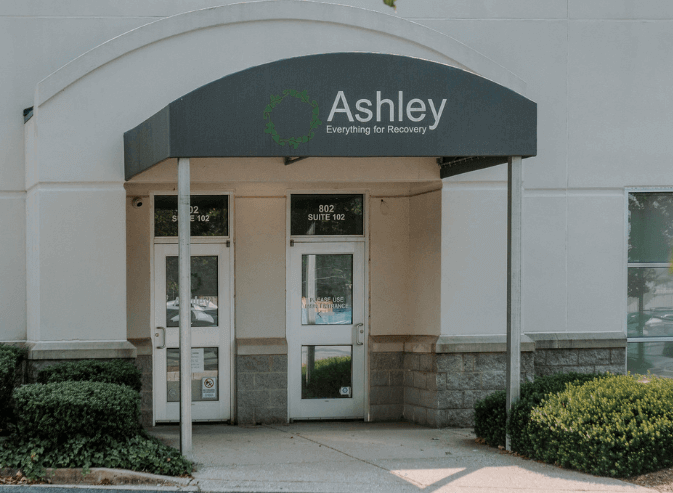

Maryland Fentanyl Addiction Treatment
Understanding Fentanyl Addiction
Fentanyl is a potent synthetic opioid, approximately 50 to 100 times stronger than morphine. Originally developed for managing severe pain, such as in cancer patients, fentanyl’s potency makes it highly effective but also extremely dangerous. It is often prescribed in the form of patches, lozenges, or injectable solutions.
Fentanyl addiction often begins with a legitimate prescription for pain management. However, due to its high potency and addictive nature, misuse or overuse can quickly lead to dependence. Individuals may misuse fentanyl by taking larger doses than prescribed or using it without a prescription. Additionally, fentanyl’s presence in illicit drugs, like counterfeit pills or heroin, increases the risk of accidental addiction.
Fentanyl’s high potency significantly affects the brain’s reward system, leading to rapid development of tolerance and dependence. Its ability to produce intense euphoria quickly makes it highly addictive. Additionally, the body develops a strong physical dependence, leading to withdrawal symptoms when the drug is not available.
What is Fentanyl?
Fentanyl is a powerful synthetic opioid that is used medically for pain management, especially in cases of severe pain, such as in cancer patients or after surgery. It is significantly more potent than morphine and heroin—approximately 50 to 100 times stronger than morphine and about 50 times stronger than heroin.
In its medical form, fentanyl is administered through patches, lozenges, or injectable forms, and it can provide effective pain relief when used appropriately under medical supervision.
However, fentanyl is also a major concern in the context of drug abuse and the opioid crisis. Illicitly manufactured fentanyl, which is often mixed with other drugs like heroin or cocaine, can be extremely dangerous. Due to its potency, even small amounts of fentanyl can lead to overdose and death, making it a significant risk factor in the ongoing opioid epidemic.
Because of its strength and the risk of overdose, fentanyl is tightly regulated, and its non-medical use is illegal and highly dangerous.

Medications Used to Treat Fentanyl Addiction
Medications commonly utilized in treatment for fentanyl addiction are:
Methadone
Methadone is a long-acting opioid agonist that helps alleviate withdrawal symptoms and cravings without producing the euphoric high associated with fentanyl. It is commonly used in medication-assisted treatment (MAT) to stabilize individuals and reduce the risk of relapse.
Buprenorphine
Buprenorphine is a partial opioid agonist that helps manage withdrawal symptoms and cravings while reducing the risk of misuse. It works by binding to opioid receptors in the brain, but with a ceiling effect that limits the effects of higher doses.
Suboxone
Suboxone is a combination of buprenorphine and naloxone. Buprenorphine helps with cravings and withdrawal symptoms, while naloxone blocks the effects of opioids and discourages misuse. Suboxone is a common choice for MAT due to its efficacy and lower risk of misuse.
Naltrexone
Naltrexone is an opioid antagonist that blocks the effects of opioids and helps prevent relapse. It is used after detox to maintain sobriety and reduce cravings. Naltrexone does not produce a high, making it a non-addictive option for long-term recovery.
What to Expect From Fentanyl Addiction Treatment
At Ashley Addiction Treatment, we employ a holistic approach to fentanyl addiction, combining medical, therapeutic, and supportive interventions to address the complexities of addiction. Our custom treatment plans are personalized, ensuring that each individual receives the care and support they need for a successful recovery.
Educational Workshops: Providing knowledge about addiction, recovery, and healthy coping mechanisms.
Medical Detox: Supervised detoxification to manage withdrawal symptoms safely and effectively.
Individual Therapy: Personalized sessions to address underlying issues and develop coping strategies.
Group Therapy: Collaborative support and shared experiences with others in recovery.
Family Therapy: Involving loved ones to repair relationships and enhance the support network.
Counseling for Fentanyl Addiction Treatment
Our counseling services at Ashley Addiction Treatment focus on addressing the psychological and emotional aspects of addiction. We utilize evidence-based therapies such as:
Signs of Fentanyl Abuse
Different Signs & Symptoms
- Physical Symptoms: Pinpoint pupils, drowsiness, and impaired coordination.
- Behavioral Changes: Secretive behavior, frequent doctor visits, or sudden financial difficulties.
- Mental Health Symptoms: Mood swings, depression, or anxiety.
Common Fentanyl Withdrawal Symptoms
- Physical Symptoms: Nausea, vomiting, muscle aches, and sweating.
Psychological Symptoms: Irritability, insomnia, and intense cravings.

Inpatient Fentanyl Rehab in Maryland
Inpatient rehab at Ashley provides a 24/7 supportive environment for those needing intensive care. You’ll reside at our facility and participate in a structured daily schedule, including medical supervision, therapy sessions, and educational workshops. This immersive setting allows for comprehensive treatment and a focus on recovery without the distractions of daily life.
Outpatient Fentanyl Rehab in Maryland
Outpatient rehab at Ashley’s Bel Air facility provides flexibility for those who need to continue with work, school, or family commitments. This program includes regular therapy sessions, both individual and group, along with educational components to support recovery. It’s an ideal option for those with a stable home environment and a strong support system, offering a path to recovery with ongoing treatment and support.


Partial Hospitalization Program (PHP) For Fentanyl Addiction
Our Partial Hospitalization Program (PHP) offers an intensive treatment option that allows you to return home each evening while participating in daily therapy sessions. This program provides a balance of structured care and independence, including individual and group therapy, medical support, and educational sessions, all designed to help you progress in your recovery while maintaining some daily responsibilities.
Supporting Your Entire Recovery
At Ashley Addiction Treatment, our goal is to provide comprehensive, personalized care to support individuals through every stage of their recovery from fentanyl addiction. If you or a loved one is struggling with heroin addiction, contact us today to learn more about our treatment options and begin the journey to a healthier, drug-free life. If you or someone you know is struggling with addiction, please reach out to our helpline, available 7 days a week, at 1-800-799-HOPE (4673), or contact us here for more information on how we can help.




